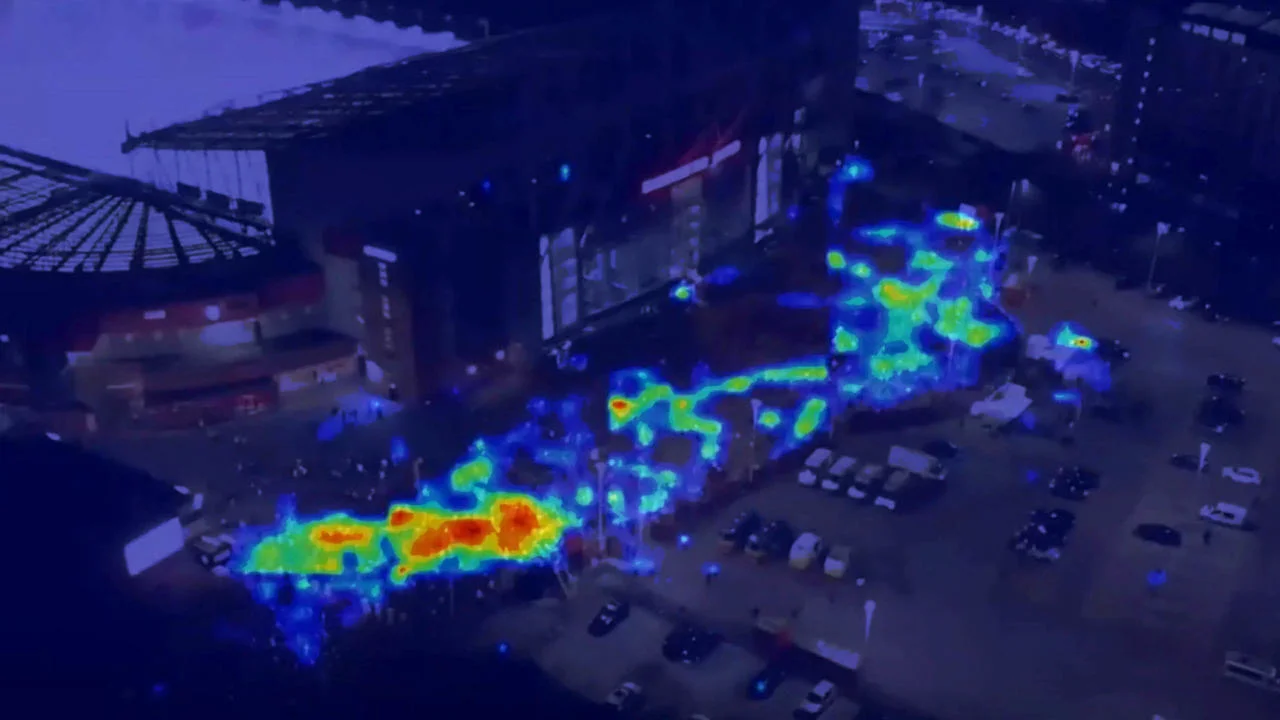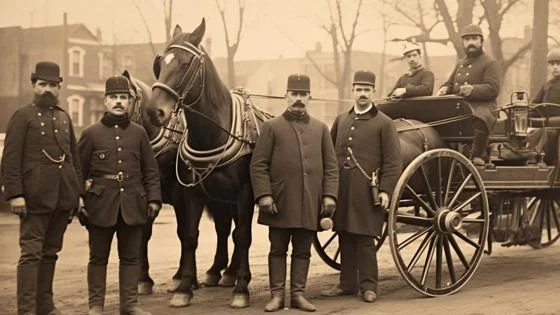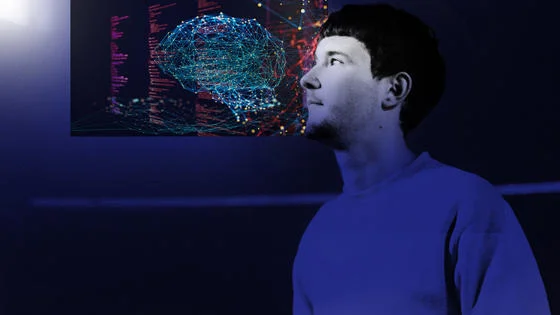Using AI to improve public safety at public events

Contents
Managing large crowds at high-profile events has always presented major challenges for law enforcement and security stakeholders. From sudden surges in crowd density to unpredictable protest movements, ensuring public safety without compromising the event experience requires strategic coordination, foresight, and adaptability.
As urban environments grow more complex and major events attract increasingly dynamic and diverse audiences, traditional methods of crowd control are no longer sufficient. This is where artificial intelligence (AI) is stepping in to reshape public safety. AI technologies are now enabling real-time insights, predictive analytics and faster, more informed decision-making.
To explore these capabilities in a live setting, Greater Manchester Police (GMP) partnered with the Policing and Crime research group at the Centre for Economic Performance at LSE to run a real-world trial. The venue: the Manchester United versus Arsenal football match at Old Trafford on 9 March 2025. The goal: to test how AI-powered monitoring (N-AI’s platform) could support crowd management, improve situational awareness, and optimise resource deployment in one of the UK's busiest stadiums, while also demonstrating how cutting-edge research can be translated into real-world impact.
The initiative aligns with the broader mission of "AI for Good", which aims to ensure that innovation is directed toward enhancing public welfare.
AI can be used not to replace, but to empower public safety professionals.
How N-AI technology played a key role in the Manchester trials
For this deployment, live drone footage of the stadium and surrounding areas was securely streamed via encrypted VPN to LSE servers, where the data was processed in real time by N-AI's platform, returning analytics to GMP’s Gold Command (which had overall command of the operation) with only millisecond delays.
This setup allowed GMP to access real-time crowd density analytics through a non-invasive, privacy-compliant system that uses a "dots on a map" visualisation method. The technology was put to the test when a pre-match protest unfolded near the stadium, demanding rapid decision-making and dynamic police deployment.
We found that N-AI's platform was successful in capturing and analysing over 2.5 hours of high-definition aerial footage during the protest and as crowds entered the stadium. By providing an aerial perspective with real-time crowd density data, the system enabled GMP to more easily identify crowd surges, potential bottlenecks and artificial obstructions, including parked vehicles and police vans, allowing for more informed decision-making. In addition, the drone-based perspective meant the command team could monitor both static crowd concentrations and moving formations, helping to prevent safety issues before they escalated.
AI can help officials manage large crowds safely
The system operated consistently throughout the whole event. Importantly, it integrated seamlessly with GMP's command structure, providing relevant intelligence to those overseeing safety management of the event. Ultimately, the technology enabled GMP to make faster, data-driven decisions, particularly during the protest when merging crowds posed complex logistical challenges.
Through this project, and as a result of us being able to "test" the system in real time, GMP has been able to gain a more robust understanding of N-AI's capabilities, which proved technically reliable and demonstrated operational value in a live, high-pressure environment.
As Assistant Chief Constable Chris Sykes said: "This partnership with LSE is about us finding the best way to properly understanding crowd sizes, crowd dynamics and how crowds are moving. This is a really important tool for us in understanding public order and public safety, particularly at large events, football matches, music concerts and protests."
In the past, crowd estimates were only made using specialist officers. ACC Sykes reports that these estimates "were reasonable, but nowhere near as accurate as what we've seen so far from the technology. Particularly when attached to the drone, we’re getting overhead footage, and the technology is telling us how many people are in the crowd. Soon, it’ll also be able to tell us the density and whether we’ve got any crushing or crowd density issues."
[This] collaboration ... exemplifies the future of law enforcement: where human expertise and intelligent systems work together to create safer, more responsive public spaces.
The future of AI in public safety
The success of the Manchester trial has set the stage for broader AI integration into public safety strategies. N-AI's platform proved technically reliable and demonstrated operational value in a live, high-pressure environment.
Future deployments could include expanded integration with venue infrastructure, such as CCTV and access control systems, and extending access to real-time data to officers on the ground through handheld devices. Building on established research by the LSE team, ongoing developments in predictive analytics will soon allow the system to anticipate crowd behaviour based on historical patterns and real-time inputs.
However, there are still challenges to address. Drone operator training is also essential to ensure optimal video quality for AI analysis.
As ACC Sykes noted: "Football events run several times a week all over the country, and here in Greater Manchester we have two of the largest clubs in the world. Tens of thousands of people come to enjoy football, and they need to enjoy it safely.
"Understanding crowd dynamics and how many people are in the crowds is so important to us. Sometimes we also face disorder, so understanding how to move people around a venue is key. This technology is helping us understand the number of officers we need and how to manage movement more effectively."
He added: "Policing can’t stand still. Sometimes it feels like the private sector races ahead and the public sector lags behind. We need to get on the front foot. I’m really excited about the technologies that are coming. AI is really going to significantly help policing in my opinion, and the technology we’re using with LSE is already proving that."
The deployment of AI-powered analytics (N-AI) at Old Trafford marked a turning point in the use of AI for crowd management. With 100 per cent system reliability, seamless integration into command structures and meaningful, real-time intelligence, the technology demonstrated how advanced analytics can support more proactive, precise and efficient policing.
By enabling data-driven resource allocation, early detection of crowd risks, and evidence-based decision-making, AI is fast becoming an essential tool for public safety. The collaboration between GMP and LSE exemplifies the future of law enforcement: where human expertise and intelligent systems work together to create safer, more responsive public spaces.
As public events continue to grow in scale and complexity, innovations like N-AI’s platform will be key to keeping crowds safe, and security stakeholders informed and proactive.
For more on the crowd management solutions offered by N-AI visit www.n-ai.com.
AI, technology and society special edition
At LSE our researchers are using technology’s revolutionary power to understand our world better, looking at AI and technology’s potential to do good, and limiting its potential to do harm.
Browse upcoming events, short films, articles and blogs on AI, technology and society on our dedicated hub.
Join us on campus or online wherever you are in the world for LSE Festival: Visions of the Future, a week of special events 16-21 June 2025, free and open to all.
The London School of Economics and Political Science (LSE) is a world-leading university, specialising in social sciences and named University of the Year by the Good University Guide 2025. Based in the heart of London, we are a global community of people and ideas that transform the world.





